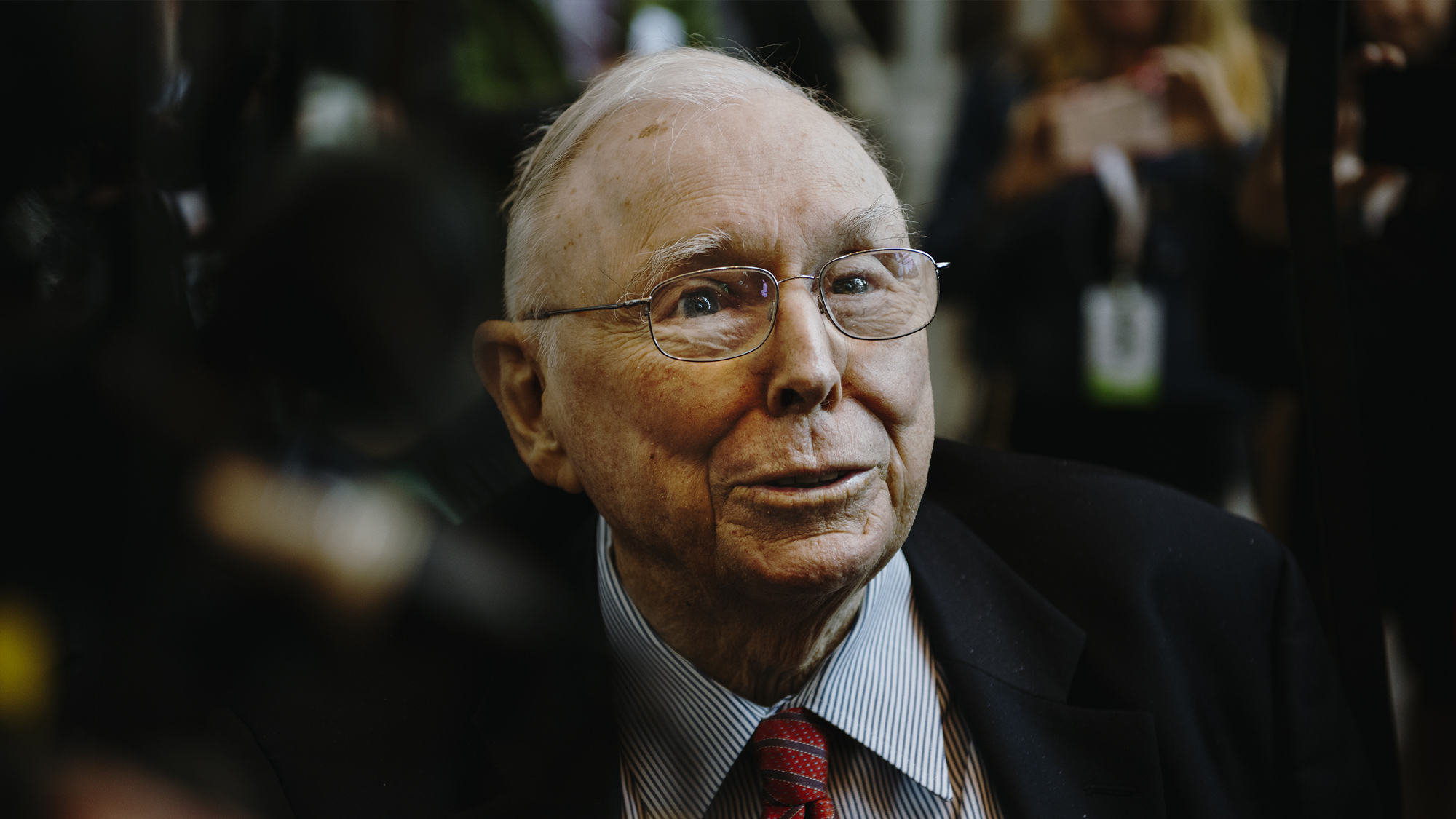Legacy: Berkshire Hathaway's 'abominable no-man'
The legendary businessman dies at the age of 99

A free daily email with the biggest news stories of the day – and the best features from TheWeek.com
You are now subscribed
Your newsletter sign-up was successful
The smartest insight and analysis, from all perspectives, rounded up from around the web:
Charlie Munger was no sidekick, said Beth Kowitt in Bloomberg. The legendary businessman, who died last week at age 99, was best known as the longtime vice chairman at Berkshire Hathaway. But he was more than Warren Buffett’s No. 2. "He was the ultimate second banana." That might not sound like a compliment, but it is. A second banana, a great business journalist once explained, is someone who "passed up the glories of the top job" to pursue the challenge of "the hands-on running" of a company. "When it comes down to it, a second banana is a CEO’s equal partner rather than a lackey," and that describes Munger to a T. He "wasn’t a yes man" — Buffett used to call him the "abominable no-man" — "but he also wasn’t a rival or a threat." He was a counterweight to Buffett in ideology, strategy and management approach. Their daily phone calls helped build Berkshire into a $780 billion company. More CEOs should be lucky enough to find a partner like that.
Munger is responsible for getting Buffett "to rethink his entire philosophy of investing," said James Surowiecki in Fast Company. "Buffett had grown up as a disciple of Benjamin Graham" and his principles of bargain hunting for undervalued companies. Munger pushed Buffett to look instead for "great businesses," which would lead to Berkshire’s phenomenal track record with stocks such as Coca-Cola, Costco and Apple. Like Lennon and McCartney or Mantle and Maris, they had complementary strengths, said The Economist. Buffett is the "master of the plain and simple," whereas Munger was "a complex thinker." But he was also "honest, realistic, profoundly curious, and unfettered by conventional thinking." Above all else, he valued the trustworthiness of business leaders, despised accounting gimmickry, and referred to Bitcoin as "rat poison."
The Week
Escape your echo chamber. Get the facts behind the news, plus analysis from multiple perspectives.

Sign up for The Week's Free Newsletters
From our morning news briefing to a weekly Good News Newsletter, get the best of The Week delivered directly to your inbox.
From our morning news briefing to a weekly Good News Newsletter, get the best of The Week delivered directly to your inbox.
Munger also never stopped working, said Jason Zweig in The Wall Street Journal. "He may well have been the busiest near-centenarian in business history." In addition to being vice chairman at Berkshire, he was chairman of the legal publisher Daily Journal, a director at Costco, and a partner in one of Southern California’s biggest apartment developers. "In his spare time, Munger still indulged his hobby of designing architectural projects," although not every idea was a success. His radical design for a college dormitory at the University of California, Santa Barbara, was abandoned earlier this year after the consulting architect resigned in protest over Munger’s plan to have digital screens in place of most windows.
The question now is how Berkshire moves forward, said Eric Platt and Harriet Agnew in the Financial Times. Buffett is 93. There are two vice-chairs, "Greg Abel and Ajit Jain, who run its operating businesses and insurance unit, respectively." Buffett has already indicated that Abel, 61, is the company’s heir apparent. "Beyond such practical considerations, Berkshire followers are also focused on the personal impact on Buffett after losing his right-hand man." On the first trading day after Munger died, Berkshire’s shares barely moved, falling only half a percentage point. That’s exactly "the kind of reaction that the two men had long wanted," and a testament to their lasting principles.
This article was first published in the latest issue of The Week magazine. If you want to read more like it, you can try six risk-free issues of the magazine here.
A free daily email with the biggest news stories of the day – and the best features from TheWeek.com
-
 6 of the world’s most accessible destinations
6 of the world’s most accessible destinationsThe Week Recommends Experience all of Berlin, Singapore and Sydney
-
 How the FCC’s ‘equal time’ rule works
How the FCC’s ‘equal time’ rule worksIn the Spotlight The law is at the heart of the Colbert-CBS conflict
-
 What is the endgame in the DHS shutdown?
What is the endgame in the DHS shutdown?Today’s Big Question Democrats want to rein in ICE’s immigration crackdown
-
 Currencies: Why Trump wants a weak dollar
Currencies: Why Trump wants a weak dollarFeature The dollar has fallen 12% since Trump took office
-
 Companies are increasingly AI washing
Companies are increasingly AI washingThe explainer Imaginary technology is taking jobs
-
 Elon Musk’s starry mega-merger
Elon Musk’s starry mega-mergerTalking Point SpaceX founder is promising investors a rocket trip to the future – and a sprawling conglomerate to boot
-
 TikTok: New owners, same risks
TikTok: New owners, same risksFeature What are Larry Ellison’s plans for TikTok US?
-
 Will SpaceX, OpenAI and Anthropic make 2026 the year of mega tech listings?
Will SpaceX, OpenAI and Anthropic make 2026 the year of mega tech listings?In Depth SpaceX float may come as soon as this year, and would be the largest IPO in history
-
 Leadership: A conspicuous silence from CEOs
Leadership: A conspicuous silence from CEOsFeature CEOs were more vocal during Trump’s first term
-
 Ryanair/SpaceX: could Musk really buy the airline?
Ryanair/SpaceX: could Musk really buy the airline?Talking Point Irish budget carrier has become embroiled in unlikely feud with the world’s wealthiest man
-
 Powell: The Fed’s last hope?
Powell: The Fed’s last hope?Feature Federal Reserve Chairman Jerome Powell fights back against President Trump's claims